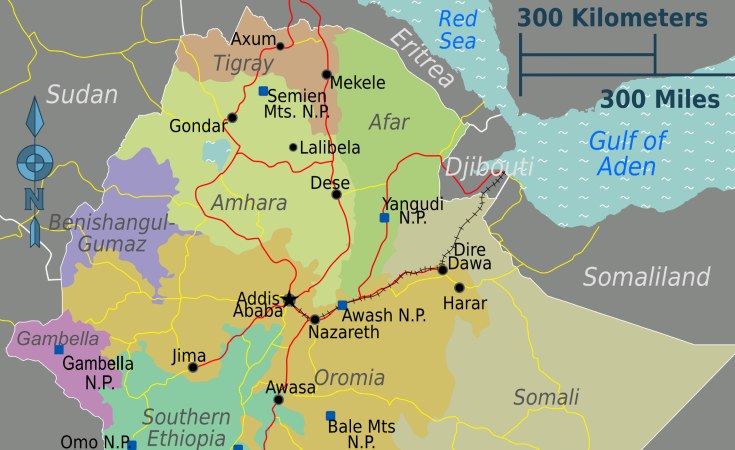Addis Ababa, Ethiopia — Rising tension in Ethiopia's Amhara region from sporadic fighting between the federal government and local militia groups, known as Fano, is causing shortages of goods and reducing health care services.
Towns across the Amhara region have come to a standstill following the fighting.
A health worker in Dembecha town, in the West Gojjam Zone, said federal troops had initially camped at the town's hospital for days, making it difficult for staff to provide health services.
The worker said the troops eventually left the hospital, but remained in town, checking on residents and making it difficult for residents to feel free to move around.
The Ethiopian government declared a state of emergency in the Amhara region in early August, restricting movement and transferring the region's administration to a military command post.
In Mezzezo town, 200 kilometers from Addis Ababa, there has been relative calm, but the insecurity has resulted in price hikes on basic goods. Goods are not coming in from Addis Ababa, one Mezzezo resident said, and the prices of merchandise and edible oil have shot up, making it hard to live.
Fighting between Fano forces and federal troops reached its peak in early August, after months of skirmishes, following government orders to re-integrate the militia into the formal security structure.
A recent U.N. report says that has resulted in the deaths of over 180 people since July. The report adds that more than 1,000 people have been arrested across the country since the declaration of a state of emergency.
A resident of Debre Tabor in the South Gonder Zone said a lot of young people were arrested last week after federal troops took over the town following days of fighting. Troops were going house to house on August 30 and 31, the resident said, going around searching for weapons and Fano. The resident added that people are still in danger.
In a briefing given September 1, Ethiopian Defense Force Field Marshall Berhanu Jula said the situation in the Amhara region is no longer posing a security threat.


